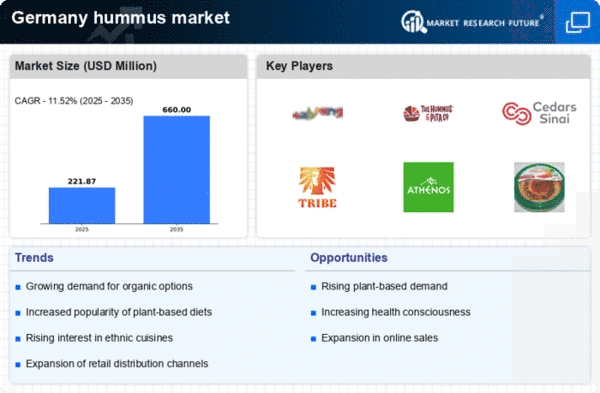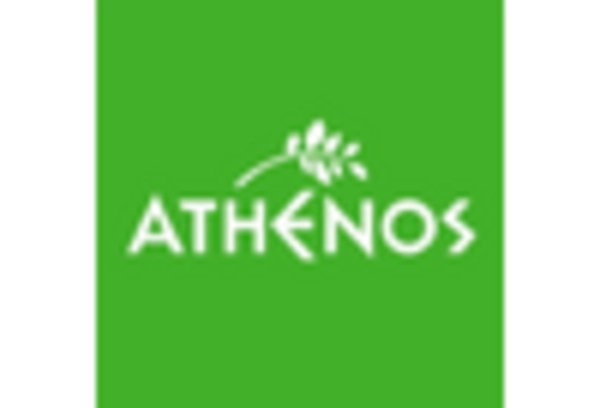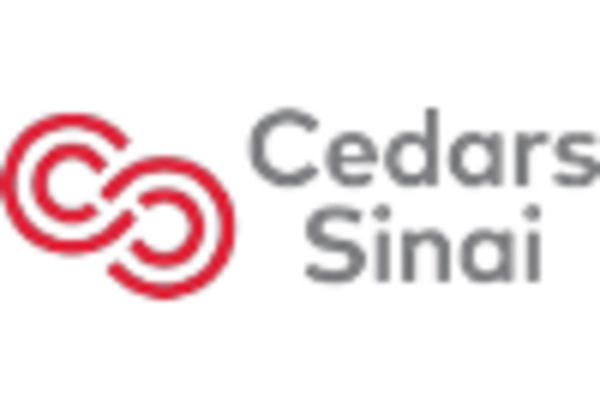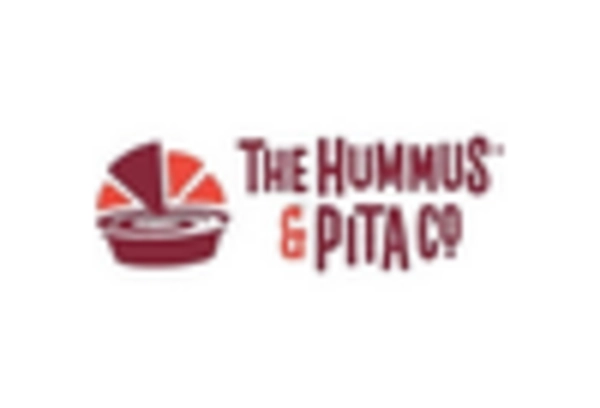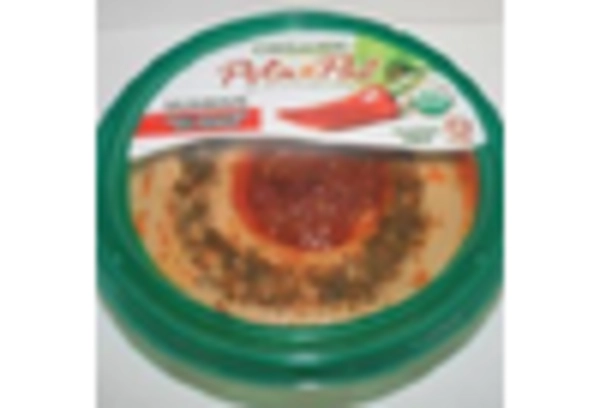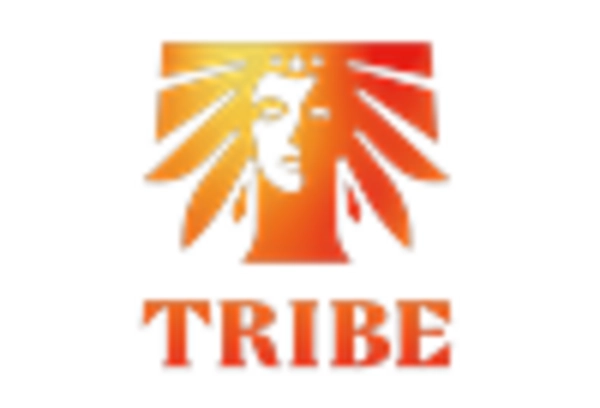Culinary Trends and Experimentation
The evolving culinary landscape in Germany is significantly influencing the hummus market. Consumers are increasingly experimenting with flavors and ingredients, leading to a rise in innovative hummus varieties. This trend is evident as gourmet and artisanal hummus brands emerge, offering unique flavors such as beetroot, roasted red pepper, and spicy harissa. The hummus market is likely to see a boost from this creativity, as consumers seek novel taste experiences. Market data suggests that specialty hummus products have gained a 10% share in the overall hummus sales, indicating a shift towards more diverse offerings. This culinary experimentation not only attracts adventurous eaters but also encourages traditional hummus consumers to explore new options.
Rising Demand for Plant-Based Foods
The increasing inclination towards plant-based diets in Germany is a notable driver for the hummus market. As consumers become more health-conscious, they are actively seeking alternatives to traditional animal-based products. This shift is reflected in the market, where plant-based food sales have surged by approximately 20% in recent years. Hummus, being a versatile and nutritious option, aligns well with this trend. The hummus market is likely to benefit from this growing demand, as consumers perceive hummus as a healthy snack or meal component. Furthermore, the rise of veganism and vegetarianism in Germany contributes to the expansion of the hummus market, as these dietary preferences often lead to increased consumption of chickpea-based products.
Growing Awareness of Nutritional Benefits
The increasing awareness of the nutritional benefits associated with hummus is a significant driver for the hummus market in Germany. Hummus is recognized for its high protein content, fiber, and healthy fats, making it an appealing choice for health-conscious consumers. Educational campaigns and social media influence have contributed to this awareness, leading to a surge in hummus consumption. Recent surveys indicate that approximately 60% of consumers in Germany consider hummus a healthy snack option. This perception is likely to propel the hummus market forward, as more individuals incorporate hummus into their diets for its health benefits. The emphasis on nutrition aligns with broader trends in the food industry, where consumers prioritize health and wellness.
Increased Availability in Retail Channels
The expansion of retail channels in Germany plays a crucial role in driving the hummus market. Supermarkets and specialty stores are increasingly stocking a variety of hummus products, catering to diverse consumer preferences. This enhanced availability is likely to boost sales, as consumers are more inclined to purchase products that are easily accessible. Recent data indicates that the retail sector for hummus has grown by 15% in the past year alone. The hummus market is experiencing a transformation, with online grocery shopping also gaining traction, allowing consumers to explore a wider range of options. This trend suggests that as more retailers embrace hummus, the market will continue to flourish, meeting the demands of a growing customer base.
Influence of Social Media and Food Trends
The impact of social media on food trends is a notable driver for the hummus market in Germany. Platforms like Instagram and TikTok have popularized hummus as a trendy food item, showcasing its versatility in various recipes and meal presentations. This visibility has led to increased consumer interest and demand for hummus products. The hummus market is likely to benefit from this trend, as influencers and food bloggers promote hummus in creative ways, encouraging followers to try it. Market analysis suggests that social media-driven food trends can lead to a 25% increase in product sales within a short period. As consumers seek to replicate visually appealing dishes, the hummus market is poised for growth, driven by the power of social media.


